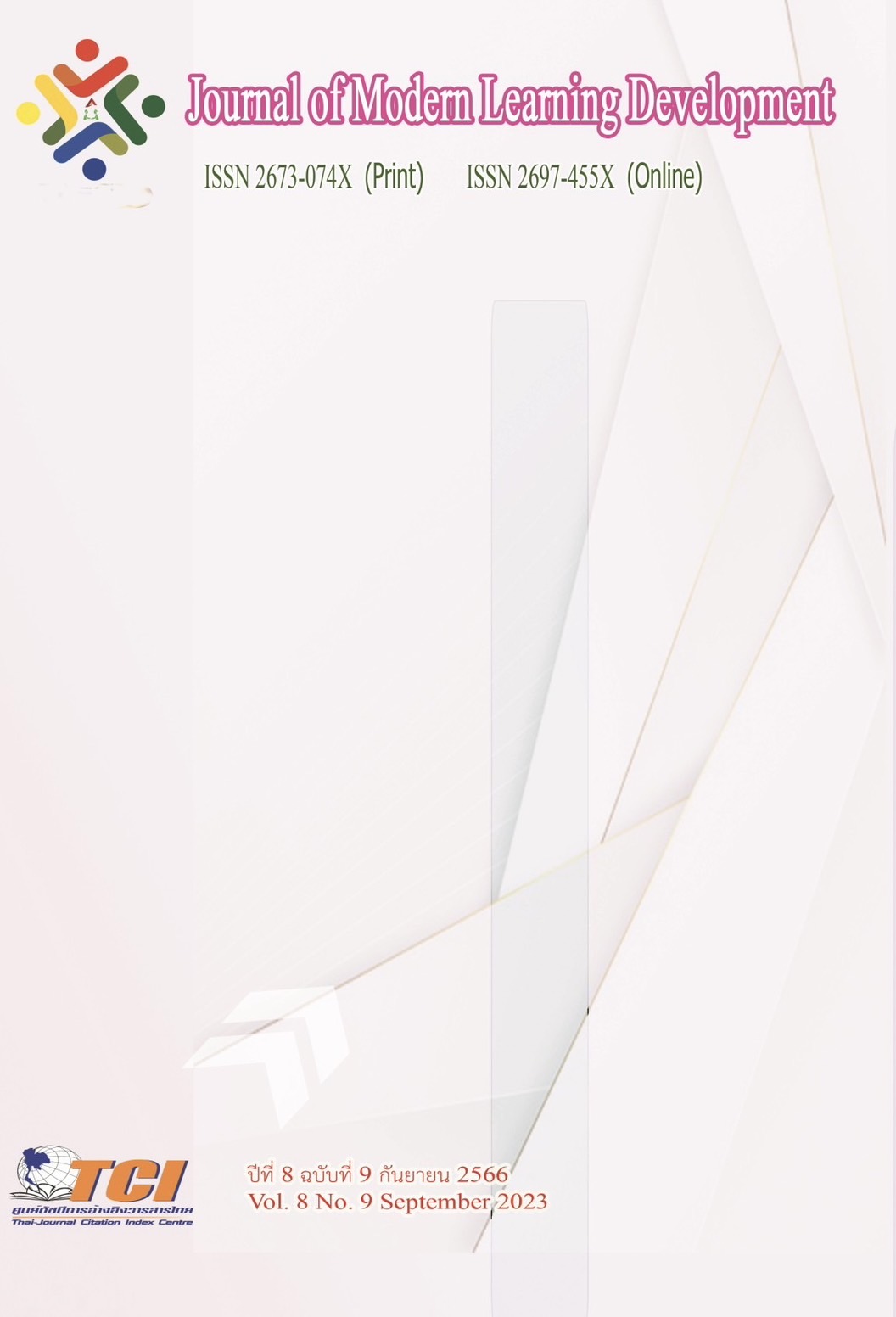The Parenting Style Factors and the Activity Involvement Factors Influence on the Student Leadership in Shenyang City University
Main Article Content
Abstract
The objectives of this research were; (1) to study the components of the student leadership and the Factors influence on student leadership in Shenyang City University, (2) to develop the model of parenting style, activity involvement and self-concept factors influence on the student leadership in Shenyang City University and (3) to decompose the effect of parenting style, activity involvement and self-concept on student leadership.
Research design used in this study was a causal research. The sample was selected from a population of the undergraduate students of school of Architecture and Engineering in Shenyang City University (total 1120 students), The sample were 453 students, determined by G*Power and using stratified random sampling method. The data correcting with 5 rating scale questionnaire (each item there were validity between .60-1.0, and each part of questionnaires had reliability between .98-.99), The data were analyzed by descriptive statistics, Confirmation Component Analysis (CFA) and Structural Equation Model (SEM).
The results found that; (1) the components of the student leadership were 5 components as follow; charisma, forward-looking, influence, control, and decision-making. The overall of students leadership was a high level, (2) After modified the measurement model (CFA Model analysis) , there were model validity (CR) = , model reliability (AVG) = and model discriminant = , and the hypothesis model fit well to the empirical data, (Chi-square = 220.89, CMIN/DF = 2.661, CFI = 0.98, TLI = 0.97 SRMR = 0.037 and RMSEA = 0.061), (3) The parenting style, activity involvement and self-concept were positive direct factors effected on student, The Parenting style and Activity involvement factors had positive indirect effected on student leadership and the self-concept factor was mediator.
Article Details
References
Bandura Albert. (1989). Social Foundations of Thought and Action: A Social Cognitive Theory. New Jersey: Prentice – Hall.
Chinese Academy of Sciences. (2006). Research on the Five Forces model of leadership. Leadership Science, 09 ,20-23.
Eccles, J.S. (1999). Student Council, Volunteering, Basketball, or Marching band: What kinds of extracurricular involvement matters? Journal of Adolescent Research.14, 10-43
Fornell, C.D. and Lacker, D.F. (1981). Evaluating Structural Equation Model with Unobservable Variables and Measurement Error. Journal of Marketing Research. 18, (39-50)
Harter, S. (1986). Manual for the self-perception profile for children. Denver, CO: University of Denver.
Steinberg L, et, al. (1992) Impact of parenting practices on adolescent achievement: authoritative parenting, school involvement, and encouragement to succeed. Child Development. 63 (5), 1266 – 1281.


